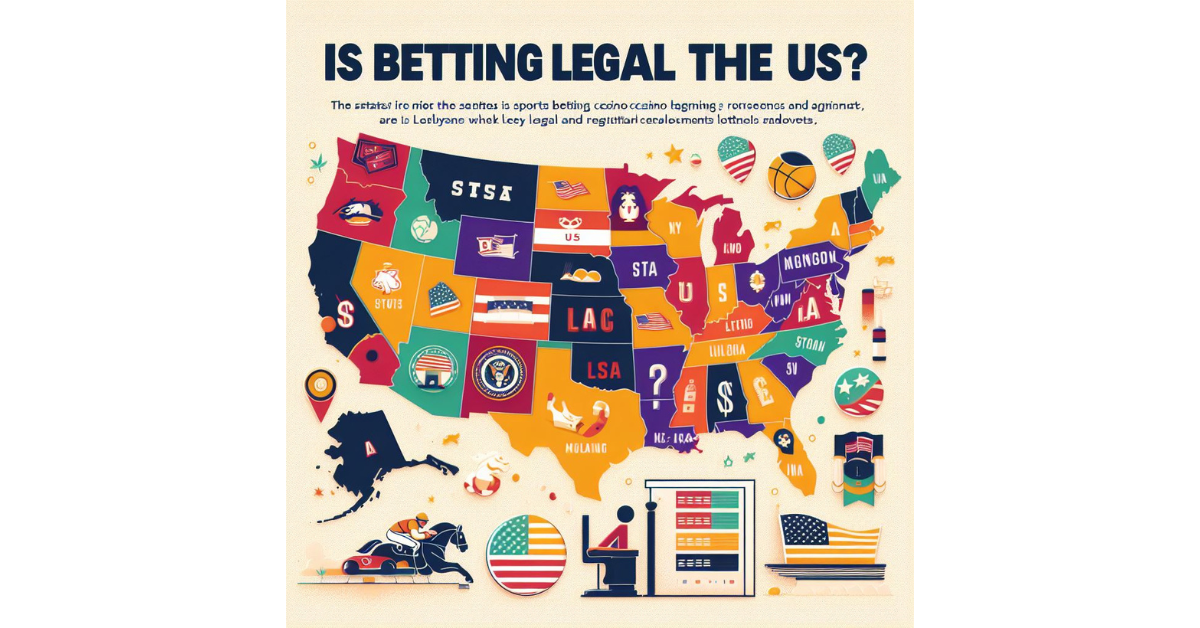Betting Laws in the United States
Betting laws in the United States can be complex and vary across different jurisdictions. While some forms of betting are permitted at the federal level, many regulations are left to individual states to decide. This decentralized approach has led to a varied landscape of betting laws throughout the country, with some states embracing gambling more than others.
The legality of betting activities in the US is often influenced by historical precedents, public opinion, and economic factors. As attitudes towards gambling evolve and states seek to generate revenue from legal betting, there is ongoing debate about the best approach to regulate and monitor these activities. The intersection of federal and state laws further complicates the issue, creating a patchwork of regulations that can be difficult to navigate for both consumers and industry stakeholders.
Types of Legal Betting in the US
In the United States, legal betting takes on various forms. One popular option is sports betting, which involves wagering on the outcome of different sports events. From football and basketball to horse racing and soccer, sports betting allows enthusiasts to put their money where their predictions are. Additionally, casinos are a prominent avenue for legal betting, offering a wide array of games such as poker, blackjack, roulette, and slot machines.
Another type of legal betting in the US is lotteries. These games of chance provide individuals the opportunity to purchase tickets in the hopes of winning substantial cash prizes. Lotteries are managed at the state level, with revenues often directed towards public services like education and infrastructure. Moreover, fantasy sports have gained popularity in recent years, with participants creating virtual teams of real players and competing based on the statistical performance of those athletes in actual games.
Regulated vs. Unregulated Betting
Regulated betting refers to activities that are overseen and authorized by government agencies. This type of betting ensures that rules and regulations are in place to protect both the bettors and the operators. The main advantage of regulated betting is the assurance of fair play and the prevention of illegal activities such as fraud and money laundering.
On the other hand, unregulated betting occurs when no governmental body supervises the betting activities. While unregulated betting may offer more flexibility and variety in terms of bet types and odds, it also comes with risks such as lack of consumer protection and potential involvement in illegal operations. Bettors engaging in unregulated betting should be cautious and aware of the potential pitfalls that come with participating in such activities.
Federal Laws on Betting
At the federal level, the primary law governing sports betting in the United States is the Professional and Amateur Sports Protection Act of 1992 (PASPA). PASPA effectively prohibited states from authorizing or licensing sports betting activities. However, in 2018, the Supreme Court ruled PASPA as unconstitutional in the case of Murphy v. NCAA, allowing states to legalize and regulate sports betting within their borders.
Additionally, the Federal Wire Act of 1961 is another key federal law concerning betting in the US. Originally aimed at curbing organized crime and mafia involvement in sports gambling, the Wire Act prohibits the use of wire communication facilities to transmit bets or wagers across state lines. Despite its original intent, the Wire Act has undergone reinterpretations over the years, particularly regarding its applicability to online sports betting.
State Laws on Betting
When it comes to betting in the United States, each state has the authority to determine its own laws and regulations. This has led to a diverse landscape where some states have embraced various forms of betting, while others have more restrictive policies in place. From casinos and horse racing to lotteries and daily fantasy sports, the legality and availability of betting options can vary significantly from one state to another.
While some states have fully legalized and regulated betting activities, others have stricter laws that either partially allow certain forms of betting or prohibit it altogether. This patchwork of regulations can make it challenging for both bettors and operators to navigate the legal landscape of betting in the US. Understanding the specific laws in each state is crucial for anyone looking to engage in betting activities to ensure compliance and avoid legal repercussions.















